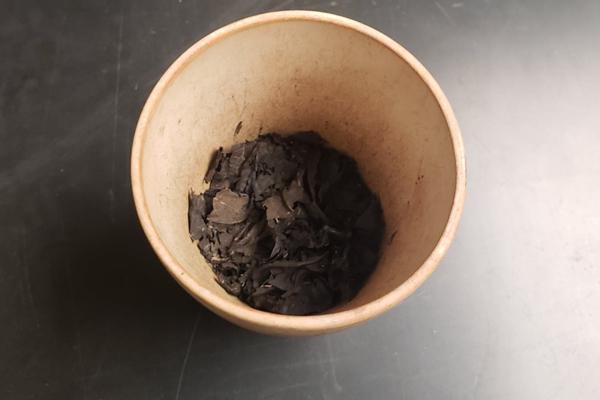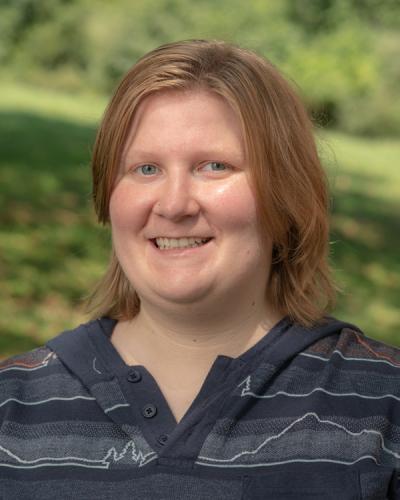
Neither wind nor ice could stop Kelly Love's fieldwork

Getting Ready for the Student Expo
Neither wind nor ice could keep Kelly Love from completing her research for the Student Expo on April 7.
Love, a graduate student in the M.S. in Environmental Studies program, is looking at different methods to determine the health of an ecosystem, with a focus on the leaves that blanket deciduous forests each fall.
To study leaf litter decomposition, she first had to collect leaves—bags and bags of them.
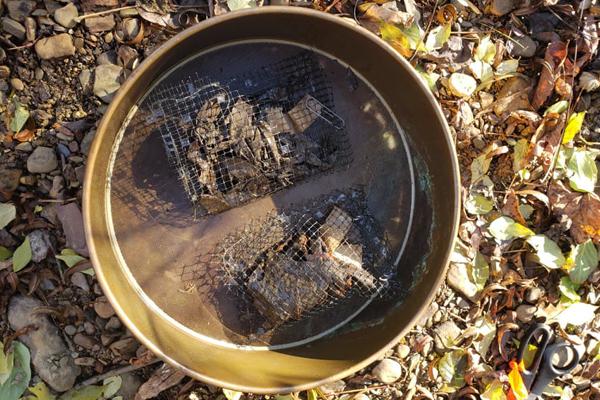
"The hardest part about my project so far was the weather during my pilot study in Athens, Ohio. At one point there was a big storm, and I lost all my leaf litter bags at one research site. Another time, there was a huge freeze, and many of my pilot sites were covered in a few inches of ice," she said.
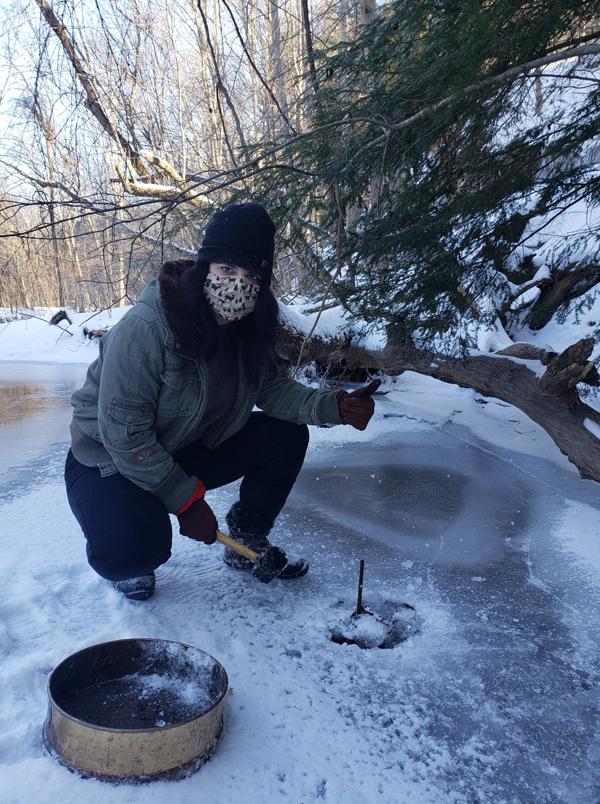
"I overcame these obstacles by remaining calm and tackling them head on. I spent a few hours in the stream locating the lost leaf litter bags. I used a mallet and chipped away at the ice until I could get my leaf litter bags. I believe keeping a calm, level head can help in most situations," said the unflappable Love.
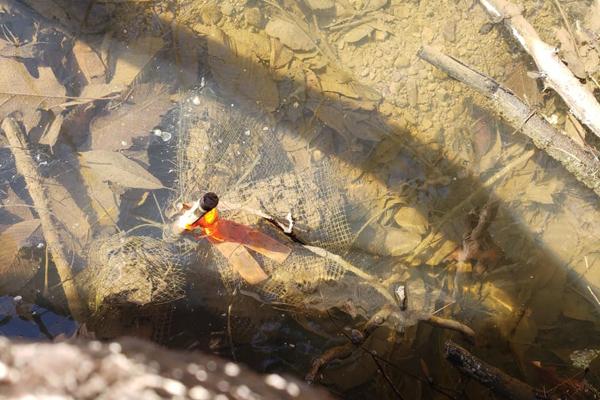
Love started her environmental research as an undergraduate student at Ohio University, earning a B.S. in Wildlife and Conservation Biological Sciences from the College of Arts and Sciences in 2018. After graduating, she served as an AmeriCorps member and focused on stream restoration in Raccoon Creek, where she learned different methods used for stream restoration and saw the importance of aquatic ecosystems. Now she's in her second semester of her graduate studies in the Voinovich School of Leadership and Public Service.
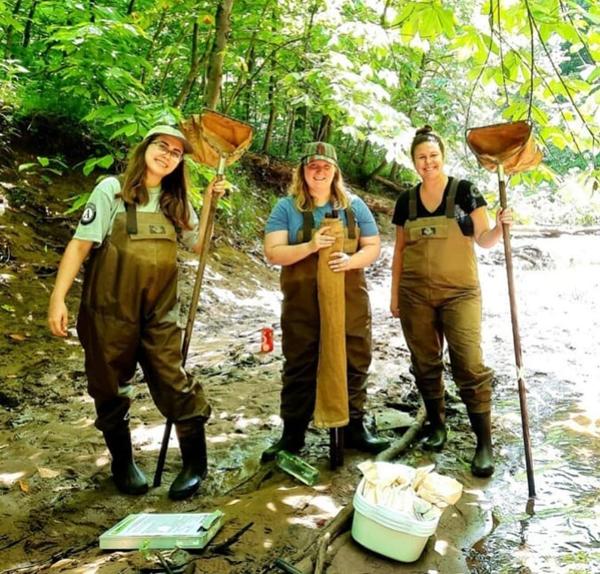
Insects, Leaves and Energy
"In terrestrial and aquatic ecosystems, an important annual ecosystem process is the breakdown of organic matter, such as leaf litter," Love said. "Detritus from autumn leaf inputs from riparian trees, in shaded, forested streams, can account for as much as 80 percent of the energy supply. Organic matter breakdown studies can be used to predict future impacts involving land use and climate change, which have become an increasing concern. I am studying leaf litter decomposition and artificial substrate decomposition to evaluate the effects of different types of restoration practices on aquatic ecosystems."
Insects are a key part of leaf decomposition, and Love is a level 2 certified benthic macroinvertebrate collector. Benthic macroinvertebrates are those aquatic animals without backbones that you can see in the water, including worms, beetles and dragonflies.
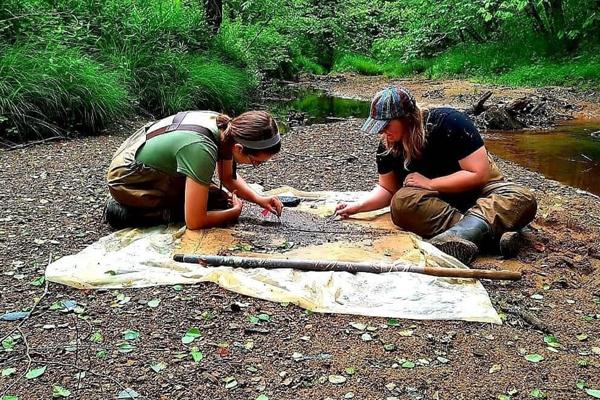
Love's interest in insects started in an undergraduate entomology class taught by Kelly Johnson, Ph.D., associate professor of biological sciences in the College of Arts and Sciences.
"When I decided to pursue a graduate degree, I reached out to Dr. Johnson about enjoying her class and my work in stream restoration. She told me about an amazing research opportunity, which involved an organic decomposition study in Ryerson Station State Park," Love said. Now she is working with Johnson and Natalie Kruse, Ph.D., professor and director of Environmental Studies in the Voinovich School.
"They inspire me by being able to tackle multiple tasks at any given time. They both have such extensive knowledge on water quality and insects that I am always so impressed about. Every time I talk to them, I leave the conversation by learning something new," Love said.
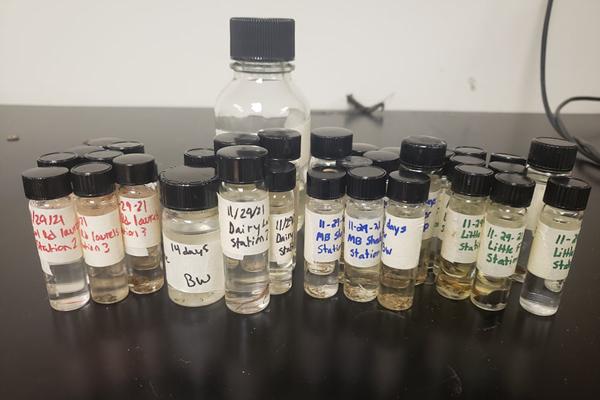
Pilot Project Takes Shape
Love's perseverance paid off, despite the weather, and she's wrapping up her pilot project.
"I loved seeing the results of my studies slowly coming together. I always enjoyed seeing what macroinvertebrates I would find in leaf litter bags. One of the stoneflies I collected had a happy face in its back," she said. Now she's excited about the next steps in her research, where she will be partnering with another student at the Voinovich school.
"I am looking forward to it!" she said.
